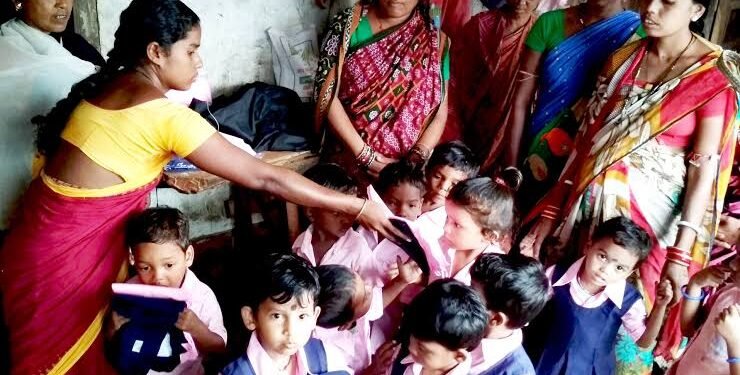Bhubaneswar – In a significant step towards strengthening child welfare and safeguarding vulnerable children, the Odisha government has rolled out a comprehensive door-to-door survey under the Orphanage Survey – 2025. The initiative, which commenced on July 11 and will continue till July 21, is being led by Anganwadi workers across the state.
This extensive campaign aims to gather vital data on children who have lost one or both parents, are living with unemployed or disabled guardians, or are otherwise at risk due to social or economic vulnerabilities. The identification process includes children up to 18 years of age living under precarious conditions as of June 1, 2025.
The key objective is to ensure that every child in distress receives timely support in the form of care, protection, and rehabilitation. Officials stated that the data collected will help the government frame policies that are tailored to the specific needs of such children, thereby ensuring more targeted and effective interventions.
As part of the state government’s “Yashoda Yojana”, which mandates such surveys every four years, the Women and Child Development Department has issued clear and detailed survey guidelines to all districts. A standardized survey form has been designed, and district-level master trainers have been trained to ensure accurate data collection and smooth implementation.
Anganwadi workers, the backbone of this mission, are collecting information at the grassroots level, which will be verified by supervisors and submitted through the Child Development Project Manager to the District Child Protection Unit. From there, the information will be uploaded to the ‘Amri Sishu’ digital portal, a centralized database created to monitor child welfare across the state.
The Odisha State Child Protection Committee will analyze this information and compile a comprehensive report, which is expected to serve as a foundation for future planning, policy-making, and direct intervention by Child Welfare Committees.
Experts note that early identification of children in need is vital to ensuring their rights to survival, development, protection, and participation are upheld. The results of this survey are also expected to influence future welfare schemes and camp-based outreach programs across Odisha.
This initiative not only highlights the state’s proactive approach to child welfare but also underscores the critical role of community workers in building a more secure and inclusive future for every child.






